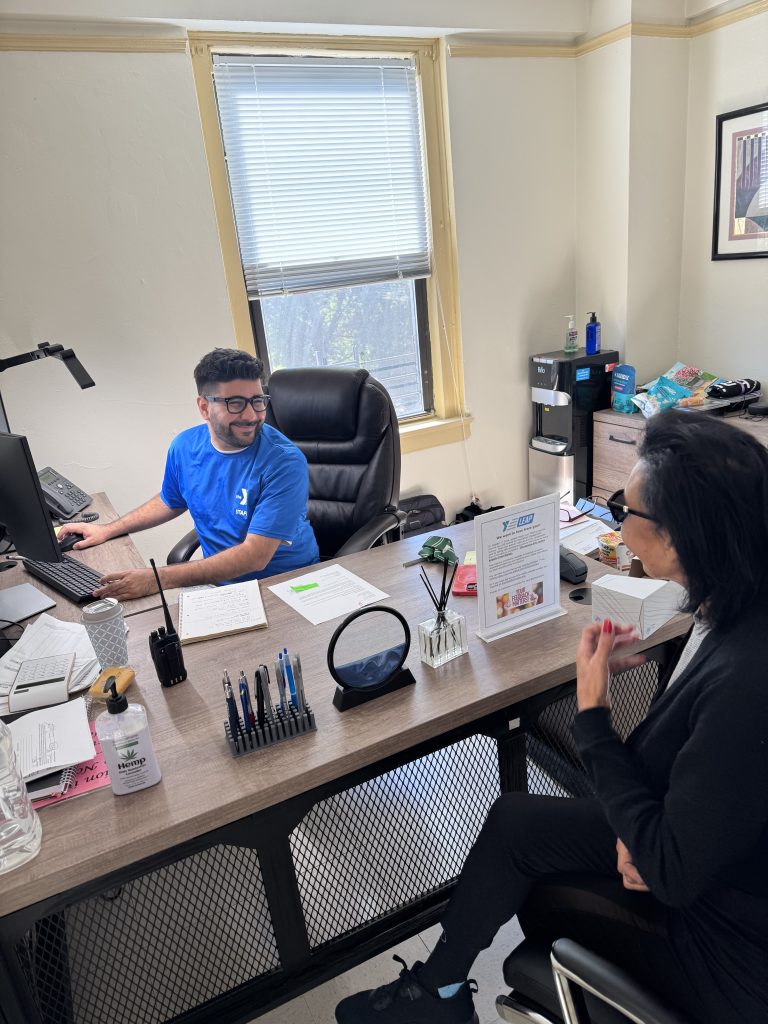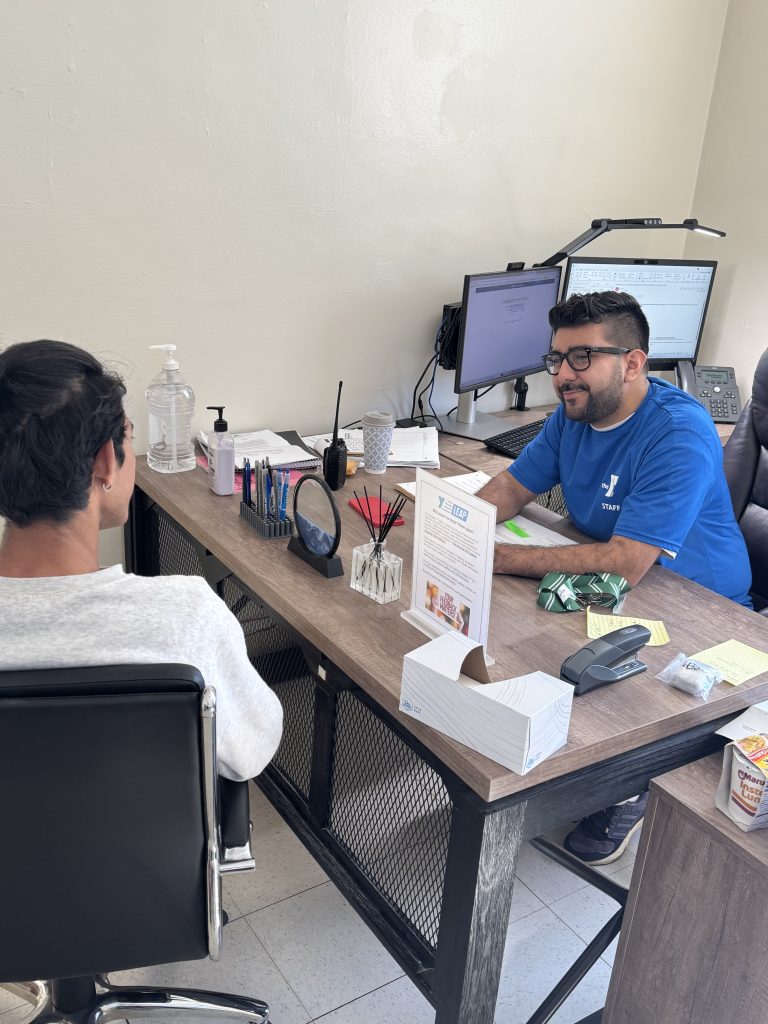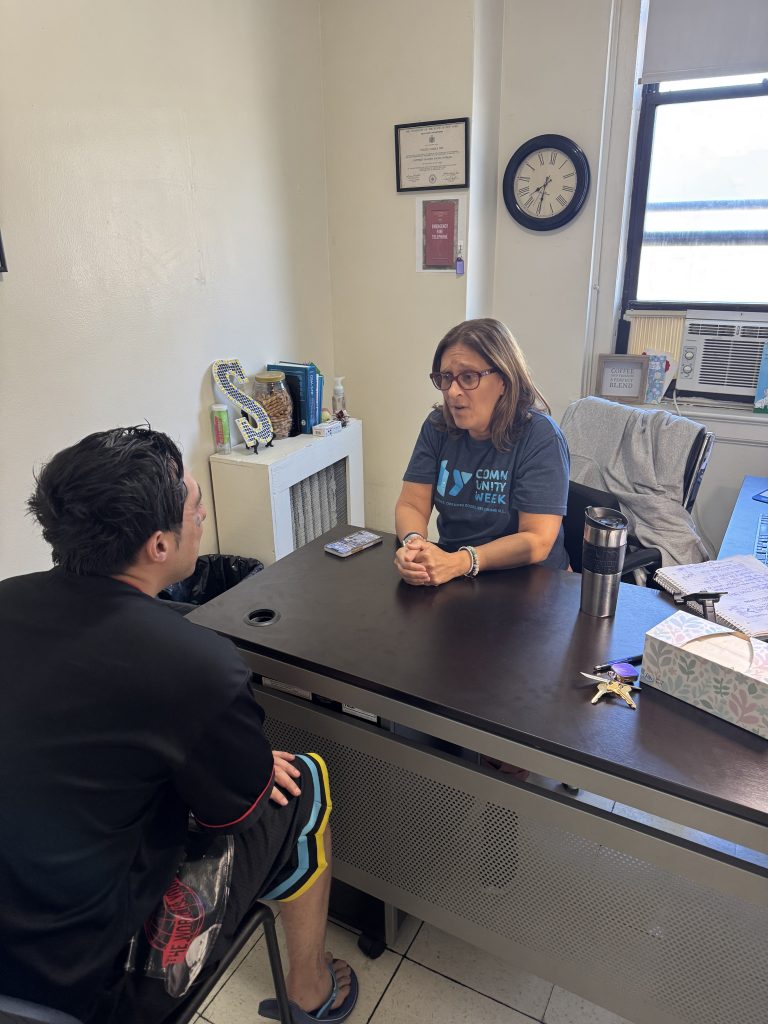
Courtesy YMCA
The YMCA of Greater New York has secured a $500,000 grant from the Citi Foundation to tackle homelessness in Queens by offering financial coaching and job training for vulnerable populations.
By MOHAMED FARGHALY
mfarghaly@queensledger.com
Citi Foundation as part of its 2024 Global Innovation Challenge, aimed at enhancing efforts to address homelessness in the Queens community. This funding comes at a critical juncture as homelessness continues to rise in the United States, particularly affecting vulnerable populations, including young people in New York City.
“A myriad of factors have led to the persistence of homelessness in communities around the world, including in the U.S., where the lack of affordable housing means that too many individuals and families go to sleep each night without a safe and stable home,” said Brandee McHale, President of the Citi Foundation and Head of Citi Community Investing & Development. “Each grantee selected to join this ambitious cohort of innovators recognizes the need for bold and locally tailored solutions that will equip our neighbors with the resources they need to secure affordable, reliable housing for both the near and long term.”
Cedric Dew, Vice President of Transitional Housing at the Jamaica YMCA, expressed enthusiasm for the funding, noting that the YMCA successfully articulated a compelling case to secure one of only nine global grants.
“We were one of nine recipients to receive the grant,” Dew said. “We were able to articulate a really strong case for this opportunity to provide these services to our community. Housing is the most important thing, and we know that without solid income and a foundation of economics, folks struggle to always sustain housing.”

Courtesy YMCA
This initiative aims to support 750 individuals and restore dignity through community engagement and partnerships.
The grant will enable the YMCA to offer a range of essential services tailored to individuals experiencing homelessness. These services include financial coaching, job training, employment opportunities, and stipends, with particular emphasis on meeting the diverse needs of the Spanish-speaking community and those affected by HIV/AIDS. This comprehensive approach aims to empower clients and equip them with the skills necessary to regain stability in their lives.
The urgency of these resources is underscored by alarming statistics from the New York City Department of Homeless Services. Between January and July of 2024, over 1,100 young people were denied shelter, often resulting in their return to the streets. Dew highlighted the importance of proactive engagement with young adults—ages 18 and older—who are particularly vulnerable.
“One of the things that this program will do is it will restore dignity,” Dew said. “When you empower people with knowledge and information, they start to feel empowered. We see this as a great opportunity to reinforce the work we currently do by assisting people with housing while at the same time giving people the tools they need in order to move into current housing.”
Through the funding, the YMCA aims to serve approximately 750 individuals, focusing heavily on financial literacy as a cornerstone of its initiative.
“Every time we don’t assist young adults, we run the risk of people becoming homeless,” Dew said. “We help them make smart decisions about credit cards. We help them understand what student loans mean. Most of these folks have experienced some version of trauma, and the trauma has to be dealt with.”
The initiative not only seeks to provide immediate relief but also aims to foster long-term stability for participants.
In addition to financial education, Dew emphasized the YMCA’s holistic approach, which includes addressing the emotional and social needs of clients who have often faced significant trauma.
Dew shared that many of the individuals seeking help at the YMCA come from diverse backgrounds, including women fleeing domestic violence, veterans re-entering civilian life, senior citizens, and young people aging out of foster care. Each of these groups brings unique challenges, and the YMCA is committed to providing tailored support.
To measure success, the program will focus on “rehousing” clients and tracking their progress as they transition into stable living situations. Dew described a hopeful mantra at the YMCA:
“When we see people walk out our door, we know we’ve done our job,” Dew said. “We see this in the long game, to continue providing these services to people in the community who need these services.”

The long-term vision for the YMCA’s transitional housing program is one of sustainability and growth. Dew stated, “We see this as not just a two-year initiative but a sustained effort to provide ongoing services to the community.” He believes that demonstrating successful outcomes and sharing the stories of individuals who benefit from the program will be essential in attracting further funding and support.
Partnerships play a pivotal role in the initiative’s potential success. Dew highlighted the importance of collaboration, noting that the YMCA works closely with numerous local agencies and organizations to reach those in need.
“This initiative wouldn’t be possible if not for our ability to exhibit the high levels of partnerships that we have,” Dew said.
Dew also mentioned the role of education in the program, particularly through partnerships with local colleges and vocational training organizations.
“We help them make smart decisions about credit cards, we help them understand what student loans mean,” Dew said.
As the YMCA prepares to roll out this program in the coming months, Dew remains optimistic about its potential impact.
“We’re excited about the opportunity to bring added dimension to transitional housing in Jamaica Queens,” Dew said.
The YMCA of Greater New York stands poised to make a significant impact in the fight against homelessness, showcasing the potential for innovative solutions through collaboration, community engagement, and a commitment to dignity and respect for all individuals. As the program takes shape, it represents a beacon of hope for those struggling with homelessness in Queens, fostering a path toward stability and self-sufficiency.



